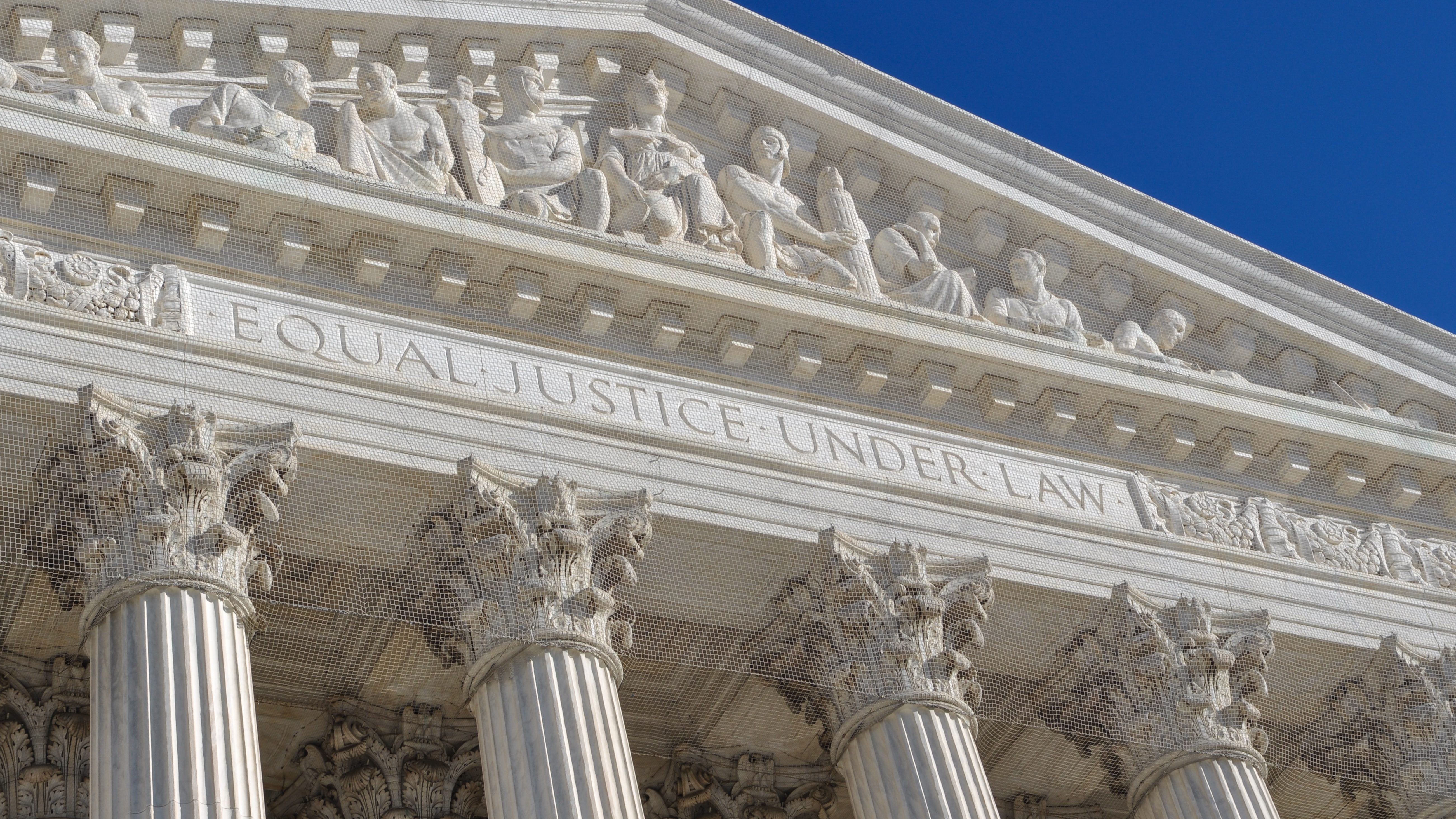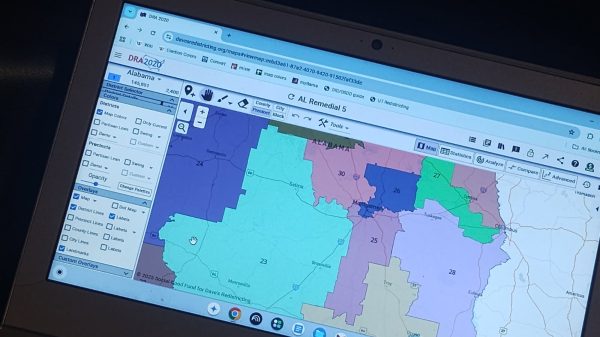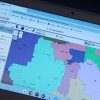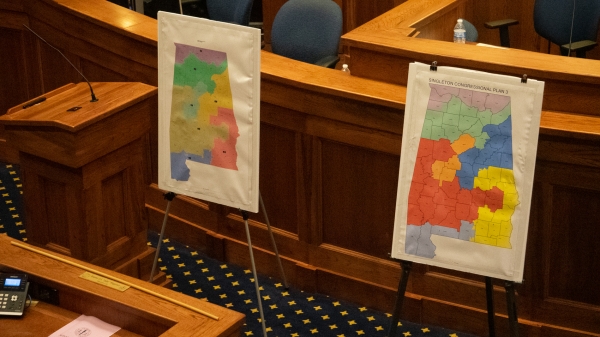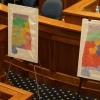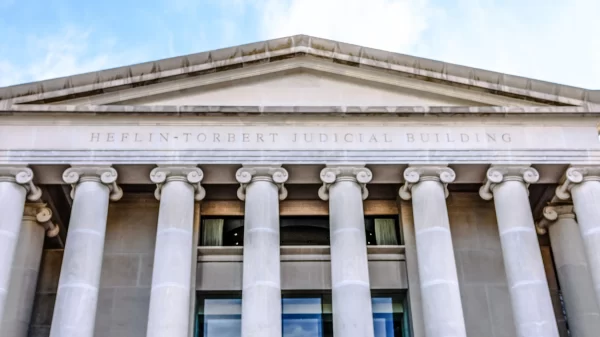The U.S. Supreme Court ruled 5-4 Thursday morning to affirm a lower court’s ruling that Alabama’s new Congressional district map dilutes the voting power of Black Alabamians and rejects the state’s argument for a new way to consider challenges over Section 2 of the Voting Rights Act.
The ruling orders the creation of a second district with a large Black population. The map was challenged almost immediately after passage, with State Senator Bobby Singleton, R-Greensboro, among the critics showing that another map could have been drawn that gave Black voters more power with two majority-minority districts. The map as passed includes only one majority Black seat out of seven Congressional districts despite one in four Alabamians being Black.
Chief Justice John Roberts issued the opinion of the Court, except as to Part III-B-1, and Justice Elana Hagan, Sotomayor and Kentanji Brown Jackson joined the opinion in full. Justice Brett Kavanaugh joined in part, again excluding Part III B-1.
The Court intervened to allow the map to be used during the 2022 elections, and justices appeared willing to follow the state’s line of argument during oral arguments in October.
However, the majority opinion not only finds that the map violates Section 2 of the Voting Rights Act by improperly diluting Black voting power, it also dismisses the state’s argument for a new way to weigh the mapping of district lines.
“The heart of these cases is not about the law as it exists,” the opinion reads. “It is about Alabama’s attempt to remake our (Section 2) jurisprudence anew … we find Alabama’s new approach to (Section 2) compelling neither in theory nor in practice.”
Evan Milligan, executive director of Alabama Forward and a leading plaintiff in the case, thanked the Court for upholding the Voting Rights Act.
“Today, we celebrate this victory for BIPOC ( Black, Indigenous, People Of Color) communities and pro-democracy advocates across the country,” Milligan said. “We are grateful that the Supreme Court upheld what we knew to be true: that everyone deserves to have their vote matter and their voice heard. Today is a win for democracy and freedom not just in Alabama but across the United States.
“This ruling proves that politicians cannot weaken our community representation by distorting congressional lines, particularly in Alabama and Louisiana. The voters will be heard, and this ruling will help secure our futures.”
“Black voters in Alabama have long been denied fair representation – and today’s Supreme Court decision in favor of voters marks a landmark moment to move the needle in the right direction,” said Marina Jenkins, Executive Director of the National Redistricting Foundation. “Our victory before the US Supreme Court today is a massive win for voting rights, and for voters across the country. Specifically, this decision will create a second Black opportunity district in Alabama, remedying generations of disenfranchisement there. This precedent also lays a foundation for fair map decisions in our other Section 2 cases in states like Texas, Georgia, and Louisiana.”
More reactions:
The Southern Poverty Law Center (SPLC), the League of Women Voters of Alabama (LWVAL), the League of Women Voters of the United States (LWVUS), Schulte Roth & Zabel LLP (SRZ), and Stand-Up Mobile submitted an amicus brief to the nation’s highest court outlining how Black Alabamians in the Black Belt and in Mobile constitute a community of interest and have been systematically deprived of their right to elect candidates of their choice to represent their interests in Congress.
“Today the Supreme Court affirmed the rights of Black voters in Alabama to elect the leaders of their choice,” said Kathy Jones, president of the League of Women Voters of Alabama. “This ruling supports the decision of the three-judge panel that these maps diluted voting power based on race. It is a powerful declaration that Black voices in Alabama will no longer be ignored. We are pleased that we are one step closer to finally achieving equal representation in our state.”
“Today’s decision was worth the wait. The Court has affirmed the crucial role of Section 2 of the Voting Rights Act in ensuring that states cannot dilute the political power of Black communities during the redistricting process and that Black voters must have the opportunity to elect the leaders of their choice,” said Celina Stewart, chief counsel and senior director of advocacy and litigation for the League of Women Voters of the US. “Today’s ruling protects equal access to representation and is a necessary assurance to Black Alabamians and Americans that equal representation in our democracy is not out of reach, and instead recognition of a hard-fought and deserved right.”
“The Supreme Court’s decision recognizes that the right of all Americans to equal representation still stands, but the fight does not end here,” said Bradley Heard, voting rights deputy legal director for the SPLC. “We will continue to challenge any barriers to voting wherever we see them, and we will advocate for the full restoration of all protections under the Voting Rights Act.”
“Today’s ruling has real meaning for Black Alabamians and the issues that most directly impact their lives, work, and families,” said Noah N. Gillespie, attorney with Schulte Roth & Zabel LLP, which served as pro-bono counsel on the brief. “This decision shows Alabama and states across the country that the protections of the Voting Rights Act remain strong.”
“We’re glad that the Supreme Court has reaffirmed our right to an equal voice advocating for Black communities in Alabama. This represents a victory for equal rights over discrimination,” said Beverly Cooper, co-founder of Stand Up Mobile. “With an equal voice we will continue advocating for equal investment in our infrastructure, education and healthcare, and we will push for fully restoring voting protections to ensure all voters can make their voices heard.”
This is a developing story.







































